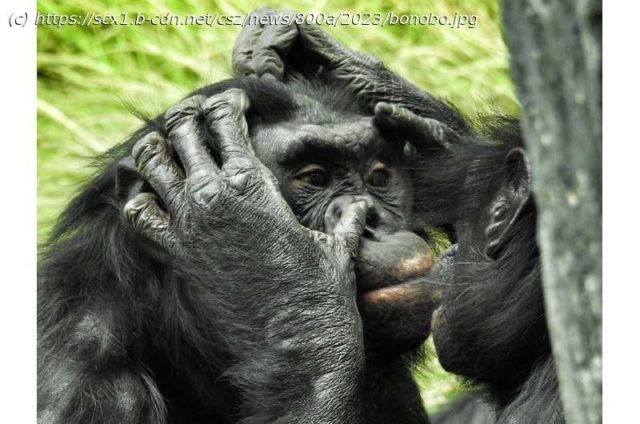Remembering the order of information is central for a person when participating in conversations, planning everyday life, or undergoing an education. A new study, published in the journal PLoS ONE, shows that this ability is probably human unique. Even the closest relatives of humans, such as bonobos, do not learn order in the same way.
Remembering the order of information is central for a person when participating in conversations, planning everyday life, or undergoing an education. A new study, published in the journal PLoS ONE, shows that this ability is probably human unique. Even the closest relatives of humans, such as bonobos, do not learn order in the same way.
„The study contributes another piece of the puzzle to the question of how the mental abilities of humans and other animals differ, and why only humans speak languages, plan space travel, and have learned to exploit the earth so efficiently that we now pose a serious threat to countless other life forms,“ says Johan Lind, associate professor in ethology and deputy director at the Center for Cultural Evolution, Stockholm University.
Earlier research at Stockholm University has suggested that only humans have the ability to recognize and remember so-called sequential information, and that this ability is a fundamental building block underlying unique human cultural abilities.






